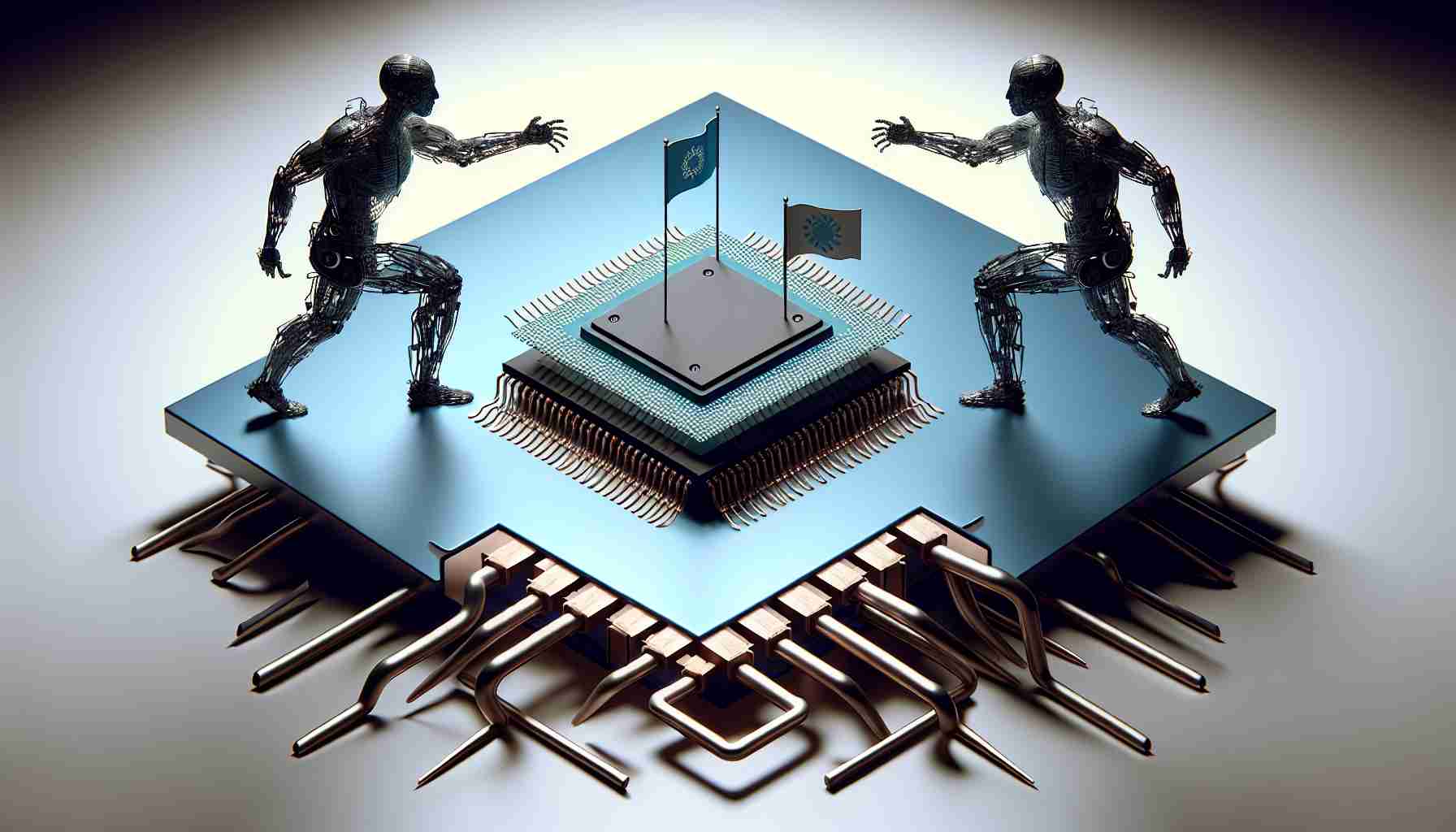The technological rivalry between the United States and China is intensifying, as the U.S. aims to restrict Chinese consumers’ access to chips vital for artificial intelligence development. This strategic move underscores the broader competition in advanced technology sectors that are crucial for economic and military edge.
While Washington is focused on curbing Beijing’s AI advancements, Chinese authorities are pressuring local tech giants—including Alibaba, Baidu, Tencent, and ByteDance—to cease purchasing chips from leading manufacturers like Nvidia. This push reflects China’s resolve to become self-reliant in the technology sector and reduce dependency on foreign suppliers.
This situation marks a new chapter in the ongoing disputes between the two global powers, as each country attempts to establish technological supremacy. The implications of these disagreements are vast, potentially affecting global supply chains, international trade policies, and the future landscape of tech innovation. As the tug-of-war over technology continues, the world watches closely to see how this competition will shape the international order in the digital age.
Key Questions & Answers:
– What are the implications of the US restricting China’s access to AI chips?
Restricting China’s access to AI chips could slow down China’s AI development, giving the US a competitive advantage. This can impact global supply chains, as China may be forced to accelerate its development of domestic chip-making capabilities, reducing dependence on US technology.
– How is China responding to the US pressure on tech companies?
China is motivating its tech giants to pursue and invest in domestic chip production and AI research. This reflects a strategic shift towards technological self-sufficiency in response to US export controls and sanctions.
– What are the key challenges or controversies associated with US-China tech tensions?
One major challenge is the potential for a technology “decoupling,” where the two superpowers create separate and possibly incompatible tech ecosystems. This could lead to global fragmentation in technology standards and regulations. Additionally, there’s controversy over the impact on innovation, as cross-border collaborations have traditionally driven advancements in AI and other tech sectors.
Advantages and Disadvantages:
Advantages:
– The US may gain a strategic military and economic advantage by retaining control over the most advanced AI technologies.
– Limiting China’s access can protect intellectual property and maintain US companies’ market dominance.
Disadvantages:
– Restrictions might provoke retaliatory measures from China, potentially leading to a trade war that could hurt global economic stability.
– US firms could lose out on revenue from the Chinese market, which could be diverted to domestic or other foreign competitors.
Related Links:
– Information on the impact of US policy on global tech: U.S. Department of State
– Updates on China’s tech development and reactions: Ministry of Industry and Information Technology of China
– Analysis of global tech and AI advancements: Gartner
It’s evident that the US-China tech tensions have profound implications for global politics, economics, and the future progress of technology. Both countries are navigating a complex landscape as they strive to balance national security interests and economic growth. The outcome of these tensions may not only dictate the pace of AI development but could also redefine the global power structure in the technological domain.

